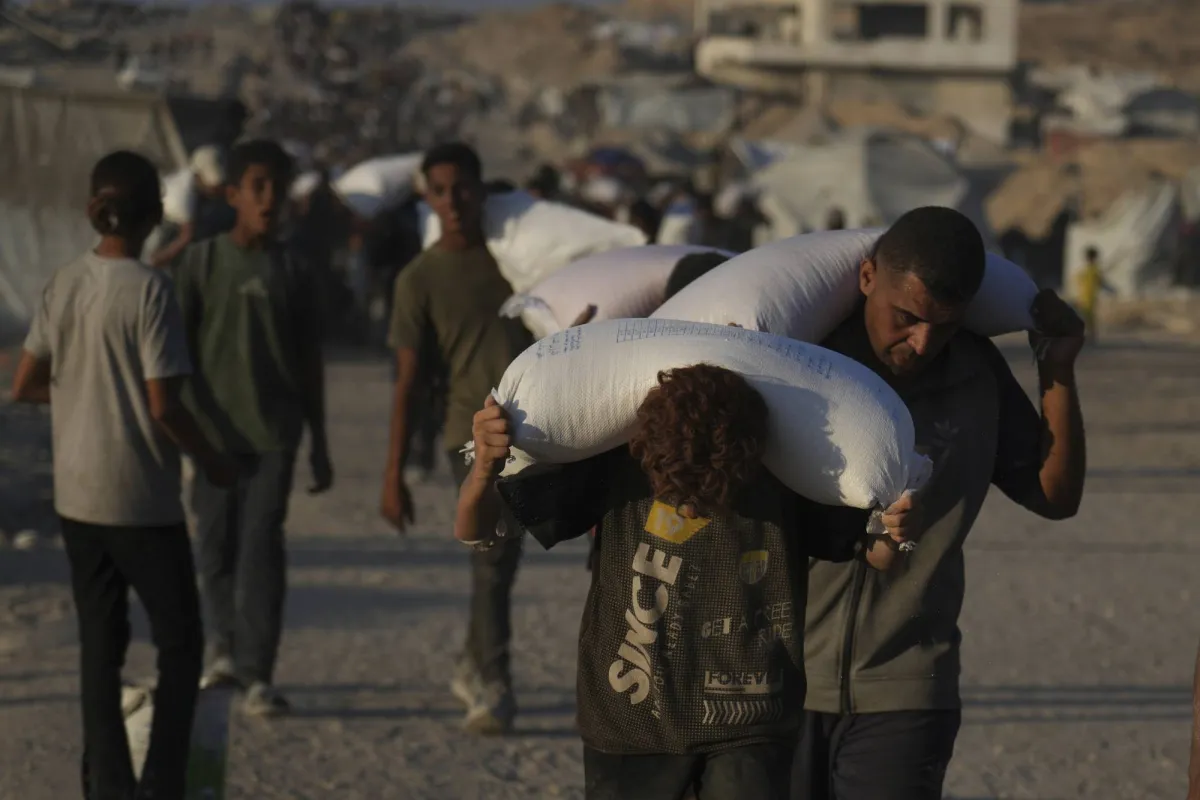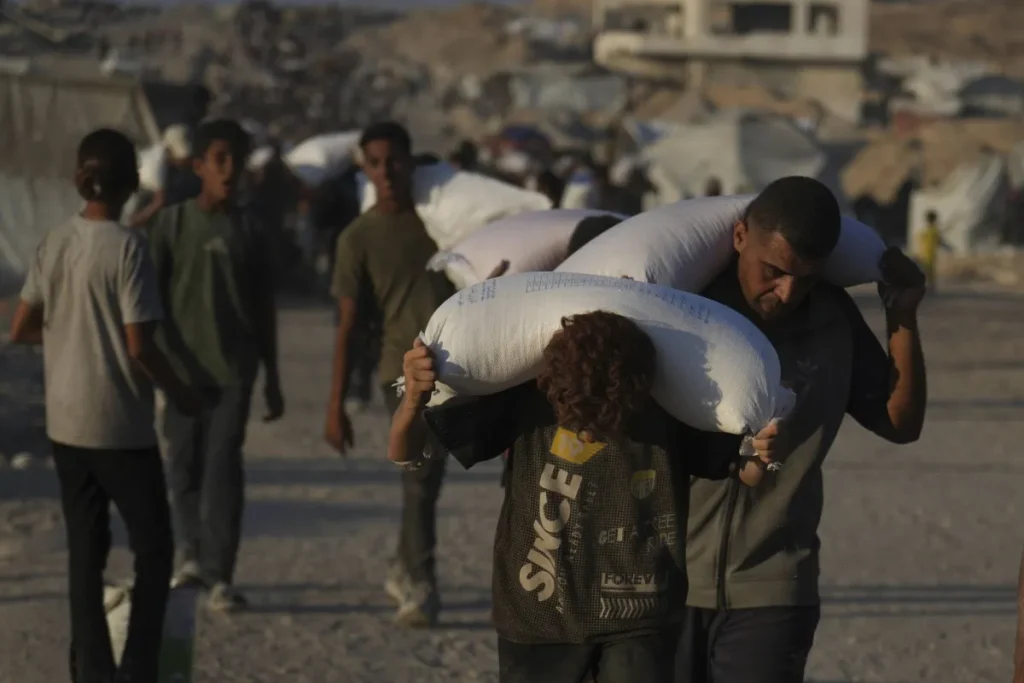The World Food Programme (WFP) warned on Tuesday that the aid allowed by Israel to enter Gaza remains a “drop in the ocean” compared to the needs, days after the United Nations officially declared famine in Gaza. The international organization attributed the declaration on Friday to the “systematic disruption” of aid entry by Israel during the nearly two-year-long war between the Israeli state and the Palestinian Hamas movement. Carl Skau, WFP Deputy Executive Director, said that in the last two weeks there has been a “slight increase” in aid entry with about one hundred trucks per day. However, Skau emphasized that this amount “is still a drop in the ocean when we talk about helping around 2.1 million people.” He added that a completely different level of aid is needed to reverse the course of this famine.
The Integrated Food Security Phase Classification supported by the international organization, based in Rome, stated that famine affects half a million people in Gaza. The classification defines famine when 20% of families suffer from severe food shortages, more than 30% of children under five suffer from acute malnutrition, and excess deaths exceed two per ten thousand per day. Skau painted a grim picture of the situation in Gaza, stressing that “levels of despair are so high that people snatch food from our trucks.” He added that when organized distribution fails, they cannot ensure reaching the most vulnerable groups of women and children in camps, and stressed the need to reach these people to avoid a comprehensive disaster. Skau also noted that Gaza is one of several crises worldwide where hunger is spreading simultaneously while donor funding is shrinking.
About 320 million people worldwide suffer from severe food insecurity, three times more than five years ago, while WFP funding has dropped by 40% compared to last year. Skau highlighted multiple crises, including Sudan, where 25 million people suffer from severe food insecurity, with ten million at the stage of starvation. He confirmed that famine has been confirmed in ten locations in Sudan, describing it as an unimaginable disaster. He also mentioned a UN aid convoy attempting to break the siege imposed by the Rapid Support Forces on Al-Fashir city in Darfur, which was attacked by a drone causing fatalities. South Sudan is also suffering a humanitarian crisis, with a possible third famine confirmation, which would be unprecedented. Due to lack of roads, aid must be delivered by helicopter and air-dropped in Upper Nile state.
Meanwhile, traditional donors have cut their aid, with US President Donald Trump sharply reducing foreign aid after taking office, dealing a severe blow to humanitarian operations worldwide. Skau stated that there is a significant reduction in funding while needs continue to rise. He pointed out that conflicts are the main cause of rising hunger levels, but also cited extreme weather events due to climate change and economic shocks from trade wars. He warned of the risk of depriving the hungry to give to those starving and emphasized WFP’s active efforts to find new donors, encouraging engagement from countries like India, Indonesia, Brazil, and others beyond traditional donors to help.














Recommended for you
Talib Al-Rifai Chronicles Kuwaiti Art Heritage in "Doukhi.. Tasaseem Al-Saba"
Exhibition City Completes About 80% of Preparations for the Damascus International Fair Launch
Unified Admission Applications Start Tuesday with 640 Students to be Accepted in Medicine
Egypt Post: We Have Over 10 Million Customers in Savings Accounts and Offer Daily, Monthly, and Annual Returns
His Highness Sheikh Isa bin Salman bin Hamad Al Khalifa Receives the United States Ambassador to the Kingdom of Bahrain
Al-Jaghbeer: The Industrial Sector Leads Economic Growth